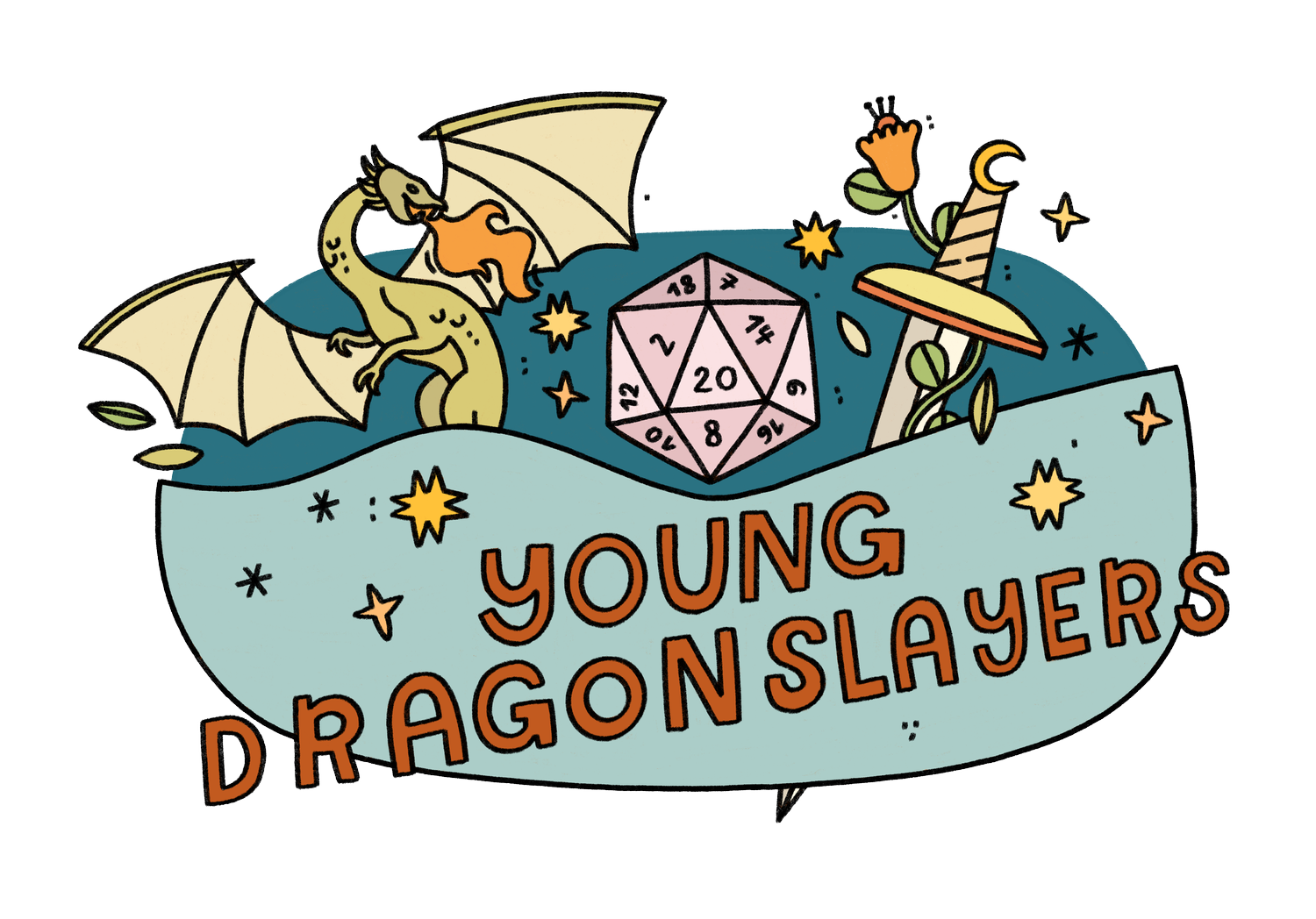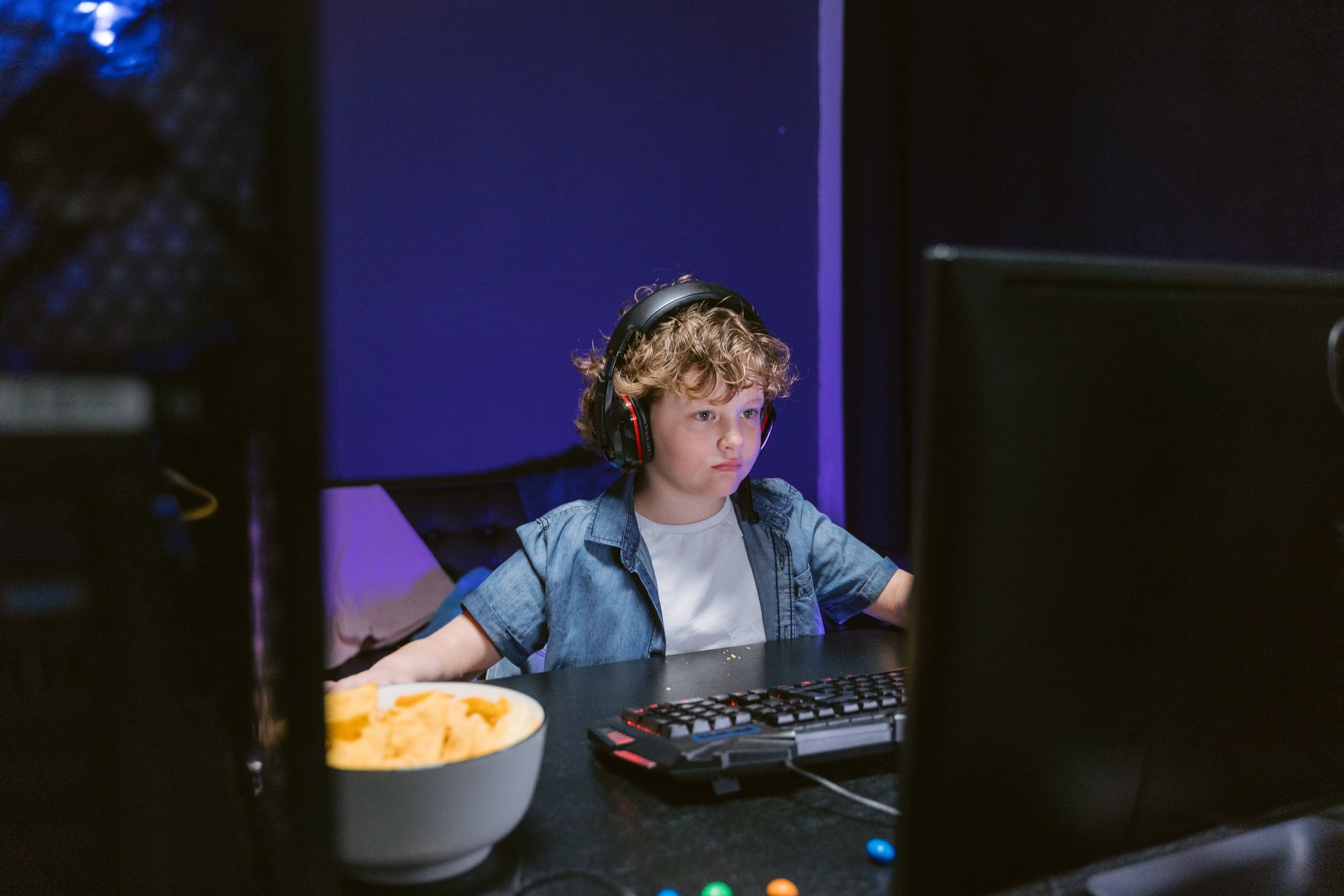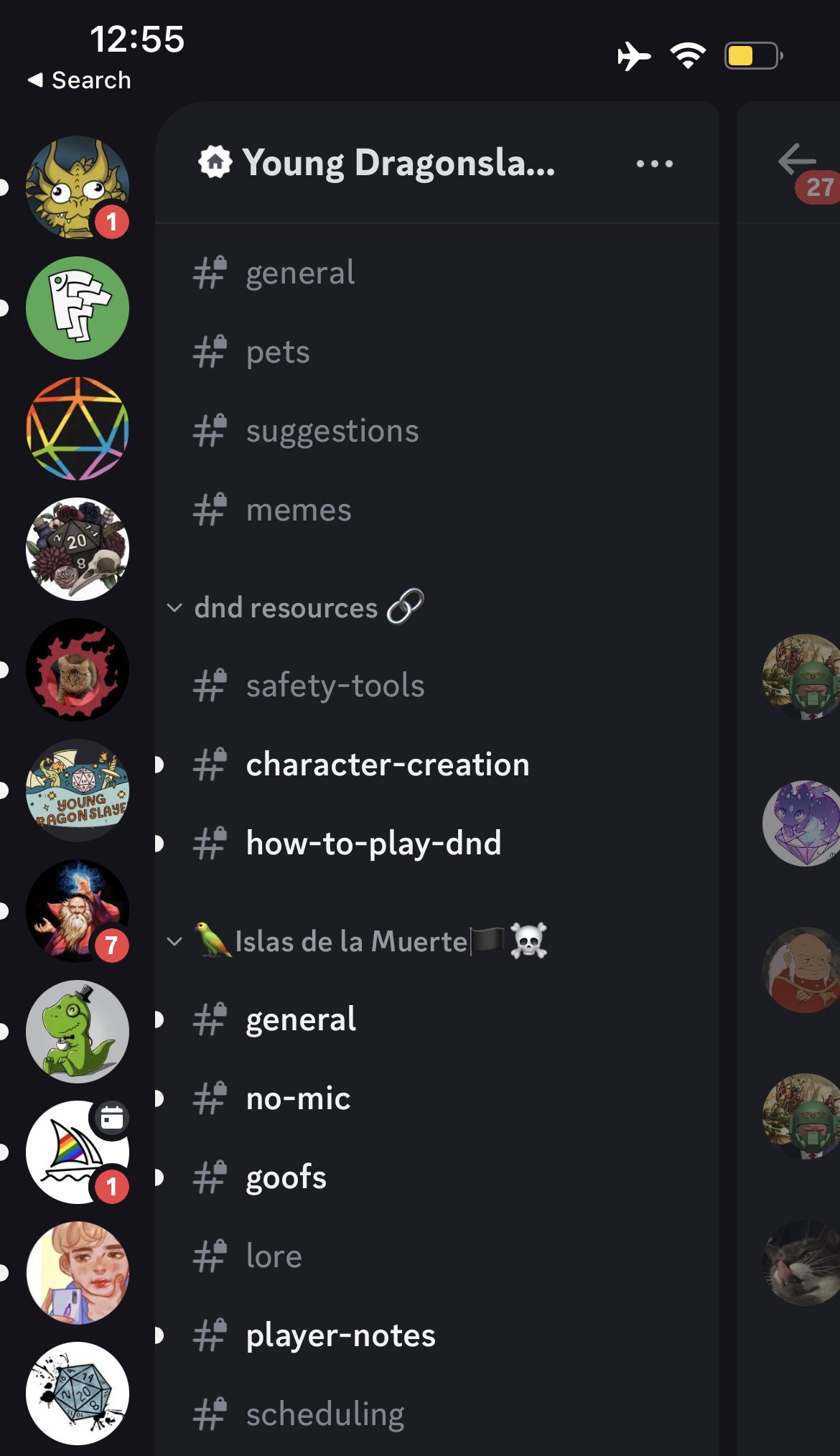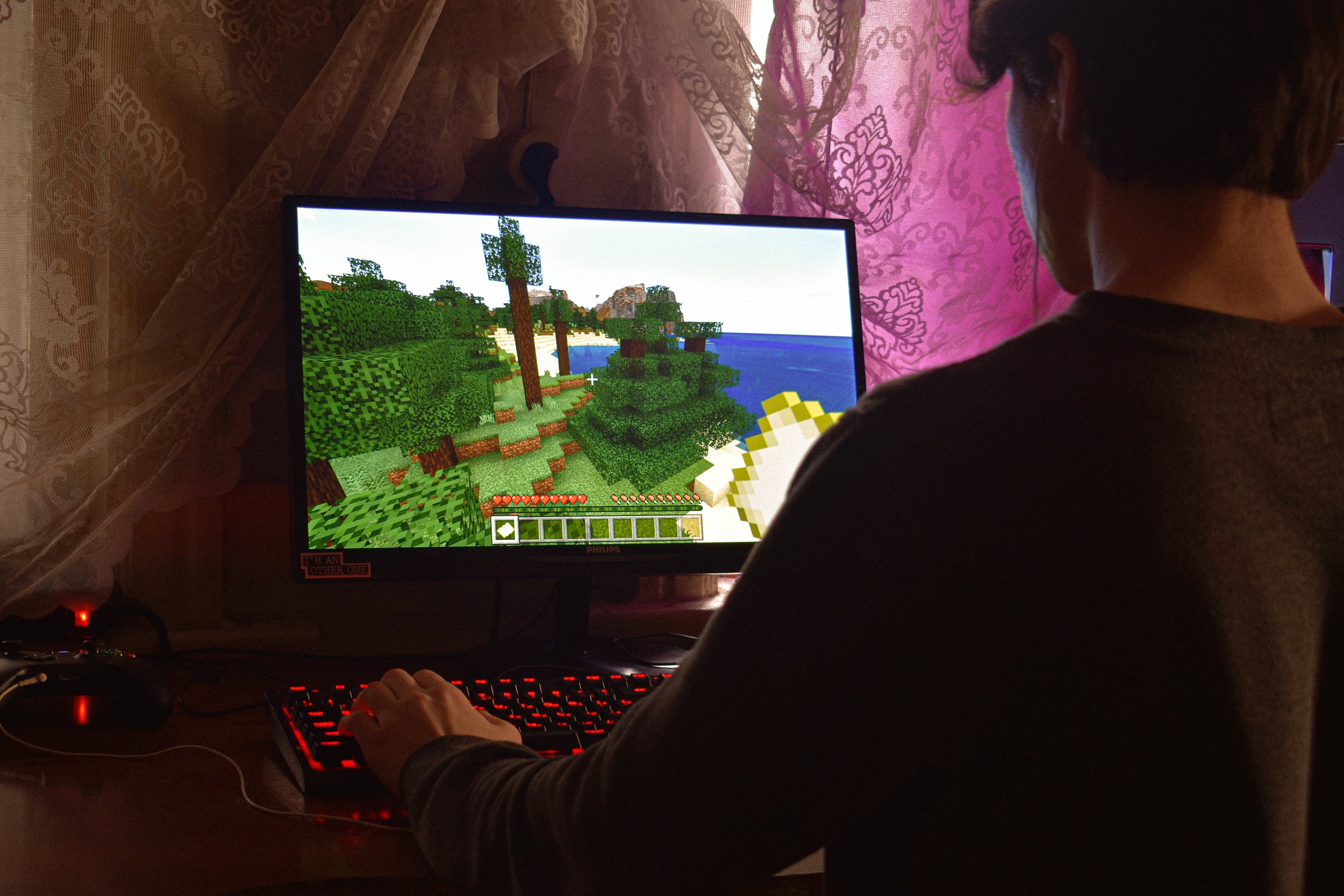Should I Let My Child Have Discord? A Guide for Parents
Online gaming aficionados, we have gathered here today to discuss a potentially controversial topic: Discord for kids. If you’re the parent of a D&D-loving child, you’ve likely heard your child talking about this app. And if you’re a gamer yourself, you’re probably using it already!
Depending on who you ask, Discord is either a fun and easy way for kids to connect with friends (often while playing games) or the supreme source of internet evil. The opinions I hear from fellow parents about Discord as a therapist, D&D professional, and mom are all over the map.
So what’s a parent to do? Cave to the pressure and let your kid use Discord even if you feel a little uncomfortable? Restrict Discord entirely and risk your child missing out on quality social interaction? Go on a deep internet dive trying to figure out how to make Discord as safe as possible for your kid?
We run online D&D games for kids and teens, so internet safety is an absolute top priority around here. We use a variety of tools to play—and yes, sometimes Discord is one of them! In this guide, we’ll be breaking down everything you need to know about Discord to make an informed deicision about whether to allow it for your child.
What is Discord, and How Does it Work?
Discord is a free, downloadable app that lets you text, voice, or video chat with people who share common interests. While it was originally designed for gamers, you can now find a Discord community dedicated to virtually any interest or hobby, from fish tanks to Fantasy Football.
Discord is comprised of tons (think millions) of servers, each dedicated to a particular interest, hobby, or game. If you’re familiar with Reddit, it’s sort of a similar concept: the app is divided into smaller communities that operate independently. Each server is its own private hang-out spot, with its own rules and community guidelines.
Within a server, people can share information, stream movies, games or music together, or simply socialize. Many servers are invitation-only to encourage privacy. That means that when you download the app, you don’t automatically gain access to them all.
It’s basically a social media platform, but with no advertisements and no algorithm to influence the content you see. Imagine that Zoom and Slack had a baby, and that baby didn’t have an office job and was more fun than either of its parents. Discord offers so many features (Group voice chats! Music streaming! Screen sharing!) that it makes sense that it’s become super popular with many kinds of people outside of the gaming world.
What are the Risks of Letting Kids Use Discord?
Before we dive into anything else, you should know that like most social media apps, Discord’s terms of service state it’s for users ages 13 and up. It’s not intended for younger kids. For this reason, we never offer Discord as an option for tween players at Young Dragonslayers™.
Even if your child is old enough to use Discord, it still comes with risks. The biggest potential dangers for kids using Discord are communicating with strangers, online bullying, and being exposed to inappropriate content.
It’s totally possible to set ground rules with your child about only joining private servers with people they know—and you can adjust their privacy settings accordingly (more on that later). However, if those settings aren’t in place it’s possible for kids to communicate with anyone on the app. And that’s where things can get—pardon the D&D pun—a little dicey.
Discord Risks Are Similar to Other Social Media
You can be very anonymous on Discord. The app doesn’t do a good job yet of verifying ages, though they say they’re working on this. This means it’s impossible to know whether the stranger you’re talking to is truly a fellow kid, or an adult pretending to be one.
Any social media platform that allows chatting carries a risk of cyberbullying. It’s just easier to be mean from behind a keyboard, when you don’t have to deal with the real-life consequences of what you’re saying. Just like on Instagram, Snapchat or Tiktok, users have the ability to private message each other and potentially say unkind things without others knowing. Unlike those apps, however, Discord doesn’t show the things you say to folks outside your server, so you don’t have posts that “go viral” and attract negative comments from strangers.
Like Reddit, YouTube, or even Google, Discord is a morally neutral platform. It’s sort of an empty vessel that users can fill with any kind of content they want: good, bad, or ugly. You can find all kinds of supportive, creative, and wholesome communities on Discord. But, even though moderators try to regulate the app, there’s plenty of inappropriate content, too.
Without supervision or safety settings, kids can easily stumble upon (or actively seek out) servers with strong language, graphic images, or problematic content. And even if your child has the best of intentions and only goes into age-appropriate spaces, there’s still a chance that someone could slip and say something off-color—as is the case anywhere on the internet.
What are the Benefits of Discord for Kids?
Ok, so Discord comes with some strings attached: why bother letting kids use it at all? Depending on your kid and their needs, it’s possible that the benefits could outweigh the risks. Discord is an ad-free, algorithm-less alternative to larger and more popular apps like TikTok that has the potential to engage kids in a more creative, educational, and socially meaningful fashion.
For teens whose friends live far away, Discord may feel like a more organic way to keep in touch than texting, Zoom, or FaceTime. It offers the flexibility of switching between text, voice, and video depending on your mood and what you’ve got going on. Perhaps most importantly, it lets you share media: you can listen to music, watch a movie, or play a game together in real time.
Discord also provides community for kids (and adults) with niche interests. Speaking from personal experience, it can be hard to get your friends and family excited about your latest journey into terrarium-building or whatever else has gotten you excited recently. But on Discord, you can instantly connect with experienced crew of terrarium enthusiasts who would be delighted to help you get started.
As someone who spends a lot of time thinking about kids, screen time, and social media, I appreciate that there’s less of an influencer culture on Discord. Sure, YouTube personalities and the like can and do host their own Discord servers for fans. But you don’t see paid advertisements, airbrushed images, or sneakily sponsored content the way you do on other apps.
What Makes Discord Good for D&D?
Our Game Masters like using Discord for D&D games because it makes it easy to talk to your adventuring buddies both in and outside of session. Players can join a group call on game nights to see and hear each other, as well as view their Game Master’s screen or listen to the selected soundtrack, without having to toggle back and forth between tabs.
D&D games can be played on a private, invitation-only Discord server, ensuring that only familiar people have access. The server can also be divided into different subcategories, called channels, to fulfill different functions for the group. Our server has channels where players can review general D&D info, ask questions or give feedback to the DM, catch up on session notes, show off fan art, or even share photos of real life pets.
Many players enjoy having the opportunity to check in with each other between sessions. Rather than waiting for next week’s game, players can scheme about how they’re going to defeat their enemy or share theories about where they think the story may be headed. If someone’s running late on game night, they can shoot a quick message to the group to let them know—or receive friendly reminder messages from their fellow party members.
Is Discord OK for My 12-year-old?
You know your kid best, so of course this is a parenting decision that is ultimately up to you. But if you’re asking us for our opinion…no, we don’t recommend Discord for kids 12 and under! Here’s why.
Discord puts kids in a position where they can chat in an unrestricted way with other people. In order to use the app safely, you need to have good media literacy skills and understand how to avoid potentially unsafe situations online. Children need to be mature enough to understand how to protect their own privacy by not sharing identifying details wtih strangers, and know how to respond (or not respond) if a stranger were to send them a message.
Today’s kids are digital natives who don’t know a life without internet, but it still takes time to develop this kind of technical savvy. 13-year-olds are just starting to figure this stuff out and still need a lot of parent support. At younger ages, even a precocious and bright kid may find themselves unsure of what to do in an uncomfortable situation.
Joining a private, friends-only server is certainly less risky than giving your 12-year-old open access to all of Discord. But we prefer to play by the rules (and Discord’s own Terms of Service) and wait until kids are at least 13 before floating Discord as an option.
Can Kids Under 12 Use Discord?
Technically? No, they can’t. Discord, like many apps, requires you to be age 13 or older to join. Kids under this age cutoff are going against the app’s Terms of Service. But Discord is not good at verifying ages yet, so there are almost certainly plenty of 12 year olds and younger kids using the app.
If you have given your 12-year-old or younger kid explicit permission to use Discord, it’s not illegal for them to use it. You won’t be sent to parenting jail. I’ve personally heard from parents who have made this decision! On the other hand, plenty of people feel the cutoff age for apps like Discord, Instagram and Tiktok should be even older than 13.
The “age 13” cutoff for accessing apps like Discord dates back to legislation from the 1990s about when tech companies should be allowed to collect data from young users without parental permission. It was kind of an arbitrary decision back then, and feels even more arbitrary now. Kids on the internet today face many more risks, but we have also more parental controls at our disposal to help keep them safe.
How Do I Make Discord Kid Friendly?
Discord offers many privacy and safety settings to ensure the app is as kid-friendly as possible for young users. There’s also a feature called Family Center that gives you the option of tracking your child’s activity within the app.
If you head to the Privacy & Safety section of your User Settings on Discord, you’ll find several features you can turn on to protect your child from talking to strangers or seeing age-inappropriate content. Some of your options include:
Blurring pictures or messages that might contain sensitive content (this is a default setting for all teen users)
Deciding who is allowed to contact you on a server-by-server basis
Sending unwanted direct messages from non-friends directly to spam
Determining who is allowed to send friend requests—if you want to accept them at all
Blocking problematic users from contacting you in any way
Depending on your family's needs and your child’s overall maturity level when it comes to using the internet, changing these settings may feel like enough protection. But if you need more direct supervision, Discord’s Family Center feature as well as third-party internet safety apps allow you to keep a closer eye on things.
Can I Monitor My Child on Discord?
Discord’s Family Center is an optional feature designed to keep parents informed about their teen’s activities while still allowing for some level of independence. They compare their level of monitoring to knowing what club your child is attending or whose house they’re hanging out at, while not sitting in the room with them listening in on their conversations.
Activating Family Center will show you what servers your child has participated in, as well as who they’ve recently friended, messaged, or called. What it won’t show you is the content of those messages: the words that your child sends remain private.
If you’re concerned about things like cyberbullying or the private conversations your teen may be having with friends, parental control apps like Bark go a degree further and screen the words that your child reads or writes to look for keywords that could indicate something worrisome is going on. These apps are not an official part of Discord and cost money to use, but they tend to be more user-friendly and can be used to monitor other social media apps, internet browsing, and text messages, as well.
Discord Safety Resources for Parents
We did a deep dive on Discord and kids’ internet safety so you don’t have to, and we’re happy to share our favorite resources that we stumbled across in the process. Whether you want to learn more about Discord, get details on how to change privacy settings, or learn how to talk to your child about internet safety, we’ve got you covered.
How to Use Discord: A Beginner’s Guide: For a closer look at the ins and outs of Discord, check out this funny and informative article from Wired. It does a great job of breaking down the intricate world of servers, channels, text bots, and more for the non-Gen-Z among us.
Four Steps to a Super Safe Account: This official post from Discord walks you through your options for adjusting the safety settings on your child’s account, and shows you exactly how to do it—with photos included.
Discord’s Safety Center and Parent Hub: This is Discord’s collection of resources for parents, teachers, and teens about all aspects of Discord safety. Their Parent Hub is particularly helpful and includes information on how to set up the Family Center monitoring feature.
Family Center: You can also use this direct link to check out Family Center, which allows you to see what servers and users your child is interacting with on Discord.
Bark and Circle: These are two popular parent-control apps that let you monitor your child's activity on their phone or computer, including text messages, Google searches, and most social media apps (including Discord). I often recommend Bark to families in my therapy practice because it still gives kids some semblance of privacy: it scans all written material for keywords that could indicate something’s not right, and sends an alert and text snippet to parents if one of those words is detected. Otherwise, it doesn’t quote everything a child says to their parents.
How to Talk to Teens About Dealing with Online Predators: This guide from Common Sense Media is a great jumping-off point for discussions about the varying degrees of “creepy people” teens might encounter on the internet. It’s realistic but not alarmist, and provides specific scripts you can use so you don’t feel lost in an awkward convo.
So, Should I Let My Kid Use Discord or Not?
Like most parenting decisions, there’s no one-size-fits-all answer about Discord use. Even though Discord has set its minimum age at 13, not all 13-year-olds are the same! Keep your child’s development, not just their chronological age, into account when making this call. You could consider questions such as:
What’s my child’s overall maturity level?
How impulsive is my child when handling conflict?
Does my child have a solid understanding of how to stay safe online?
How open is our communication when it comes to problems?
How much do I want to monitor use of the app?
Using Discord is essentially a choose-your-own adventure experience. Depending on your safety settings, it can offer a more private, customized, and genuinely social experience than most social media apps. At the end of the day, though, it’s an app that’s primarily geared toward adults, with a wide variety of content to match.
We’ve found that for certain groups of older and more mature kids, Discord can be an amazing addition to our online D&D groups. It helps the relationships kids form feel much more real, and makes online gaming much easier. If you’re curious to hear how we handle internet safety in our games, keep reading!
Join Us for Safe, Supervised Kids’ D&D
If you’re looking for a safe place for your child to play D&D online—with or without Discord—we may be able to help! At Young Dragonslayers™, we run online games for tweens and teens using Zoom, Roll20, and occasionally Discord.
Our company was started as a way for kids to create positive relationships and practice social-emotional skills online. We love how Dungeons & Dragons helps so many different kinds of kids connect with like-minded peers. We want these groups to be as supportive and inclusive as possible, so physical and emotional safety are our biggest priority.
Here are a few ways we keep kids safe in our online games:
Games are supervised at all times by an adult facilitator who has a professional background working with children.
All facilitators undergo routine criminal background checks.
We meet with each player and family interested in our program to put faces to names, and confirm we’re all who we say we are.
Players use private, invitation-only platforms to play. We do not admit anyone whose name we don’t recognize!
Our staff follow guidelines for supporting kids’ emotional health and safety during gameplay, with a special emphasis on meeting the needs of LGBTQ+ and neurodiverse players.
We think twice before introducing Discord to our older groups—if we think kids are ready for this step, we ask for parent permission first.
If you think Young Dragonslayers™ could be right for you and your kid, we’d love to hear from you! You can fill out an application here to let us know you’re potentially interested in enrolling. We’ll get in touch quickly with information about when our next games begin and how you can get involved.







